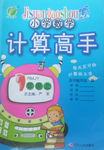题目内容
Drunken driving –sometimes called America’s socially accepted form of murder—has become a national epidemic (流行病). Every hour of every day about three Americans on average are killed by drunken drivers, adding up to an incredible 250,000 over the past ten years. A drunken driver is usually referred to as one with 0.10-blood alcohol content or roughly three beer glasses of wine or shots of whisky drunk within two hours. Heavy drinking used to be an acceptable part of the American manly image and judges were lenient in most courts, but the drunken killing has recently caused so many well-publicized tragedies, especially concerning young children, that public opinion is no longer so tolerant.
Twenty states have raised the legal drinking age to 21, reversing a trend in the 1960s to reduce it to 18. After New Jersey lowered it to 18, the number of people killed by 18-20 years old drivers more than doubled, so the state recently upped it back to 21.
Reformers, however, fear raising the drinking age will have little effect unless accompanied by educational programs to help young people to develop “responsible attitudes” about drinking and teach them to resist peer pressure to drink.
Though new laws have led to increased arrests and tests in many areas already, to a marked drop in accidents, some states are also punishing bars for serving customers too many drinks. A bar in Massachusetts was fined for serving six or more double brandies to a customer who was “obviously drunk” and later drove off the road, killing a 9-year-old boy.
As the accidents continue to occur daily in every state, some Americans are even beginning to speak well of the 13 years national prohibition of alcohol that began in 1919, which President Hoover called the “noble experiment”. They forgot that legal prohibition didn’t stop drinking, but encouraged political corruption and organized crime. As with the booming drug trade generally, there is no easy solution.
From paragraph one, we can know that ____________.
A. most Americans like drinking
B. heavy drinking is hard to avoid
C. many Americans are killed by drunk drivers
D. Americans are not shocked by traffic accidents
What can be inferred from the fact of the traffic accidents in New Jersey?
A. The legal drinking age should be raised.
B. Young drivers were usually bad.
C. Most drivers hoped to raise the legal drinking age.
D. Drivers should not be allowed to drink.
The underlined word “lenient” in the first paragraph means “_________”.
A. serious B. cruel C. merciful D. determined
In America, public opinion about drunken driving has changed because __________.
A. judges are no longer lenient
B. new laws are introduced in some states
C. the problem has attracted public attention
D. drivers do not appreciate their manly image
Which of the following best shows the writer’s opinion of drunken driving?
A. It may lead to organized crime.
B. It is difficult to solve this problem.
C. The new laws can stop heavy drinking.
D. There should be no bars to serve drinks.
【小题1】C
【小题1】A
【小题1】C
【小题1】C
【小题1】B
解析:
略

 智能训练练测考系列答案
智能训练练测考系列答案 计算高手系列答案
计算高手系列答案